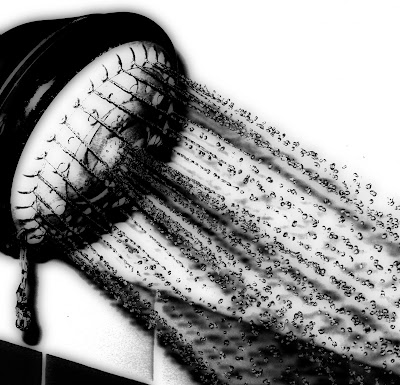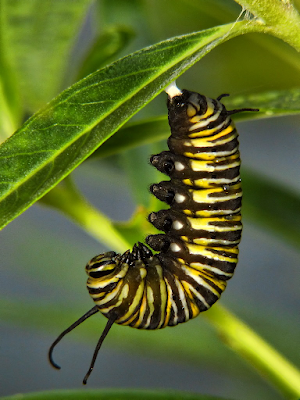"Shower" by Kevin Dooley is licensed under CC BY 2.0.
When I am in my shower, I try to be aware of gratitude. I love showering. I love the sound of the water and the way it blocks out other sounds, the feeling as it hits my skin, the temperature, the humidity, the feeling of being cocooned in this space. When I was fortunate enough to be able to design and build my house, I created a beautiful bathroom with a great shower. I am grateful for my shower.
I try to remember that what I have is extraordinary. I am able to shower every day. I can take a nice, long, hot shower. I can shower simply because I want to even if I don’t really “need” to. These facts are incredible. This is an amazing gift I give to myself. This is an astonishing opportunity that I have. And this is something that I always remember is rare indeed.
I live in a time and place where the municipality provides clean, safe water directly to my house, and utility companies deliver the energy needed to warm that water to whatever temperature I desire. A thousand years ago only a few hundred people in the world would have been able to access an effectively unlimited supply of hot, fresh water, and fewer still would have been able to indulge themselves in this way with any frequency. But even today, in most parts of the world, it is only the wealthiest individuals that can indulge such pleasures. For most people in most places around the world and across all of time, enjoying a shower would be unimaginable decadence.
Indeed, the access to clean, safe, reliable water in any form for most of humanity is something to be prayed for – I flush such water down the toilet. It is not lost on me that someday the drought in the western United States, exacerbated by climate change, will cause the water to run out, or my health will run out, or this space will be gone… someday this will be just a memory of a sweet, long-lost time. This is something that I appreciate when I am in the shower.
It is not lost on me that I have such wealth that I was able to create this space, and to purchase water and fuel. It is not lost on me that I have the freedom to choose to live in a place where clean water is delivered to my home. It is not lost on me that California is in a drought and that should the water stop, I can choose to move. It is not lost on me that I have the time to enjoy this.
I also do not take for granted the fact that I am able to shower without assistance. In her later days, my mother loved Thursday, because that was the day that her caregiver helped her to take a shower. She couldn’t undress herself alone, nor safely get into or out of the shower. She certainly couldn’t control her body sufficiently to wash her hair. I think of Senator John McCain, who, due to torture in Viet Nam, could not lift his arms over his head. Did he have to rely on others to wash his hair for him? I am aware of those in wheelchairs, paraplegics, and quadriplegics, for whom showering is likely a lengthy and involved process and may be impossible without assistance.
For myself, there was a time, not long ago, when due to medical devices attached to my body, I had to prepare myself for a shower. I had to wrap my arm in plastic wrap and tape it in place to keep my arm dry, and I had to keep my showering brief to reduce the risk of water getting under the wrapping. For a while I needed someone to help me wrap my arm, and then to unwrap it afterwards. Washing my hair alone was challenging because of limited mobility. If I could wash my hair at all, it was only with one arm. What a gift that taking a shower no longer requires any preparation beyond disrobing, and I need to do nothing more than dry off and dress afterwards.
I indulge myself in these moments of peace and beauty, knowing that just a few miles from my shower there are people living in tent camps. I don’t know how they bathe themselves. I don’t know how far they must travel, nor what they have to do to get to any kind of washing facilities at all. I indulge myself, well aware of the fact that there are uncounted millions around the world without access to safe drinking water, let alone a shower.
Sometimes these thoughts make me sad, so I cut my showering short. But more often I just try to appreciate this amazing experience, this incredible experience, this rare, unique, gift of an experience.
Forgive me for waxing poetical about the joys of showering. But I encourage all to find something in your life that you are taking for granted and to instead give it the attention that it deserves.
Afterword:
When I was a child, Thanksgiving meant a day off from school and a big, delicious meal prepared by my mother. Later on, living on my own, invited to friends’ houses for Thanksgiving, I was introduced to the ritual of each person at the table saying what they were thankful for. We had never done that in my family so I thought it was silly, but being a good guest, I went along with it, coming up with some statement of thankfulness. Now that I am older, with the perspective provided by time, and experience, and loss, and pain, I try to be thankful every day for all the great gifts that I have received. I am so very grateful for friends, and health, and food, and freedom, and among the many, many fortunes that I have, I am grateful for my shower.






